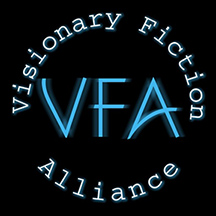I started working on my fourth novel, On The Farm. The antagonist’s personality came to me three days ago. I wanted to know why he would work against his own growth, and once I figured it out, I was ready to begin writing the story…twenty days ahead of schedule!
When I realized what motivated me to begin this new project, I knew I had a topic for my next blog. I find I write the best story when my characters are real enough to take over. I’m not implying chaos over here. Structure is very important to me, and I learned it via my screenwriting experience. It taught me how to plot effectively and make every scene count. I use the techniques in my novels because it keeps my acts clearly defined, cinematic and razor sharp. Some writers will tell you that structure leads to formulaic writing, and from my own experience, I find that declaration erroneous and harmful advice to those who are just starting out in their writing. How we write depends on how our brains process information.
Some of us can write without an outline, but not me. Because I’m right brain dominant, I need to see the whole picture for it to make sense and to get that, “Eureka, this is it!” feeling about my story. This gives my first draft more direction, but it doesn’t mean I won’t make changes as I go along. What remains is the structure that keeps me grounded to the story and prevents me from going off in irrelevant directions. This makes my editing job a lot easier.
Before I learned structure, I meandered in my writing, A LOT. And the criticism I received about my work was all about how my story didn’t have well defined acts. Once I learned various forms of structure, I began to see how a story flowed and how when I got everything right, it worked better.
Books that resonate most with me have both a well-developed plot and strong characters. Stories heavy on plot and light on character don’t hold my interest, which is why I toil, with great effort, on my own characters. The stronger they are, the more they take the lead and that’s what I count on.
Outlining prevents chaos, so we can let go and enjoy the ride.
I like outlining my stories because it reinforces the structure. The reason structure in our writing works so well is because we live in a structured environment, which means, by default, so do our characters. Even stories where societies fall apart, like in “Mad Max,” develop hierarchal systems. Try as we might, we can’t get away from structure. Everything around us is structured. We can either lead boring and predictable lives, or exciting lives, depending on our personalities. Same thing goes for our characters, which are extensions of our personalities brought on by our imagination. When we let our characters take over we free our imagination, which is far more interesting than when we hold it back because we want to control everything.
It’s all about the characters…
A strong structure and accompanying outline gave my characters more freedom to challenge my pre-determined plot points. If my foundation is solid, my characters will either head towards the story goal or attempt to stop it from happening. Their motivations are clearly related to what’s happening in the story, meaning when Fox leads Ram outside the farm for the first time, they don’t head off to the mall to play video games! Their reaction is always within the proper context. With a clear story goal, they can’t take me out of the plot. They can throw me past my comfort zone, add a twist that will take me a while to think through, or re-write a character’s association with another character, but the change is usually for the best. In Sunrise, my last novel I completed, I explained how one of the characters rewrote the conflict of my story. It was better than what I had, but because the character was strong, she led me down a different path, and I never looked back. In the middle of writing this blog, my protagonist in Jessie’s Song, did something that surprised me. It ended up increasing the dramatic tension.
On the contrary, if during the outlining stage my characters are screaming for a different outcome, and that outcome is better than my own, I’ll go ahead and tweak the last act to accommodate them. I do what’s right for the story, and I find if I keep that intention, I have a stronger and more emotionally satisfying read.
Writers as actors…
To write a great character I have to become the character as I’m writing. I have to experience her emotions, cry when she does, laugh at what she finds amusing, and be scared when she feels threatened. If I don’t feel any emotions, then I know she’s a flat character. I’ll work on a scene until I get the appropriate reaction.
My writing routine evolved into an organic practice in that I let the story flow where it must be without forcing it into what I want. It’s very Tao-like and it’s as pure as storytelling gets to me. This is why I enjoy the process so much. I never know what to expect, and this leads to suspenseful and exciting storytelling.
What gets you excited about telling stories?
Love and light,
Eleni



